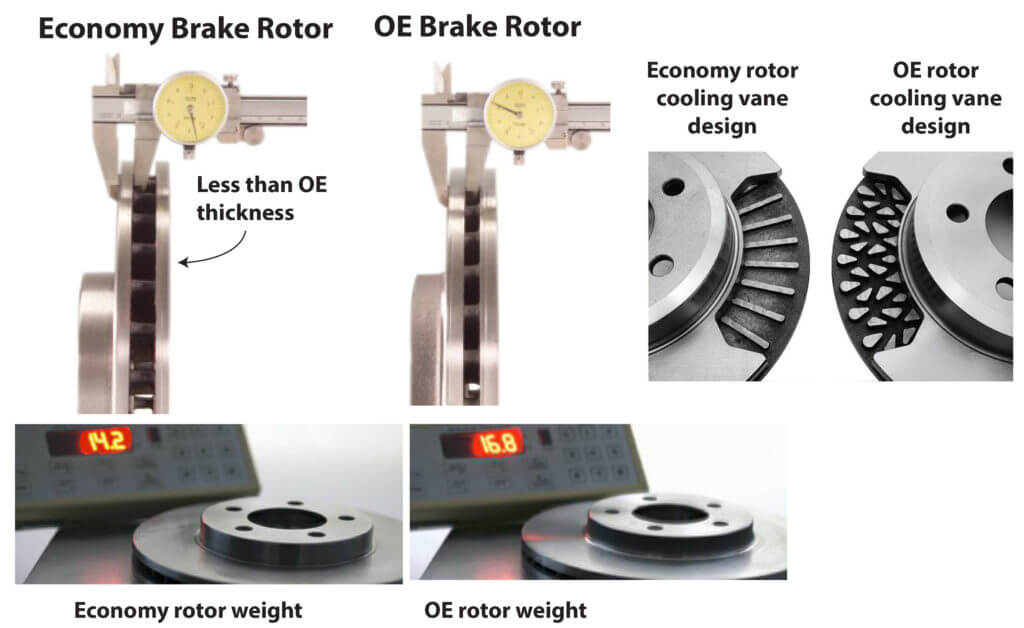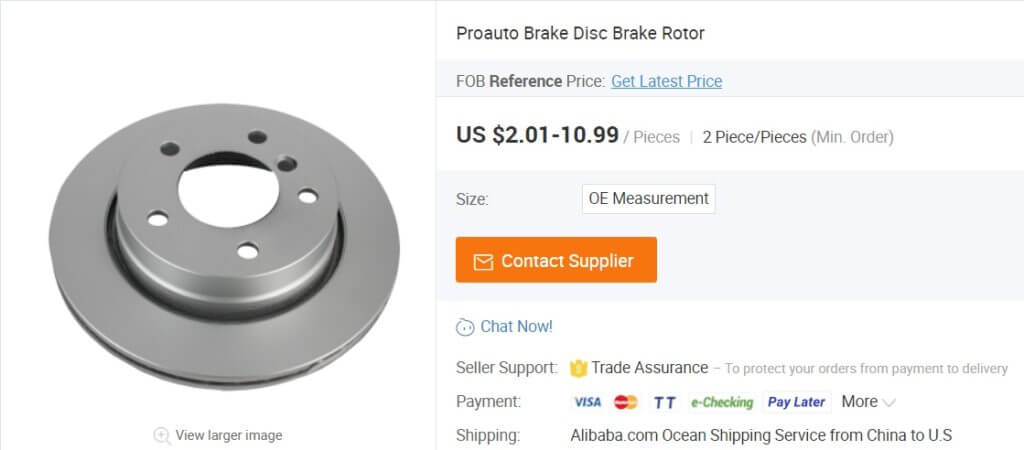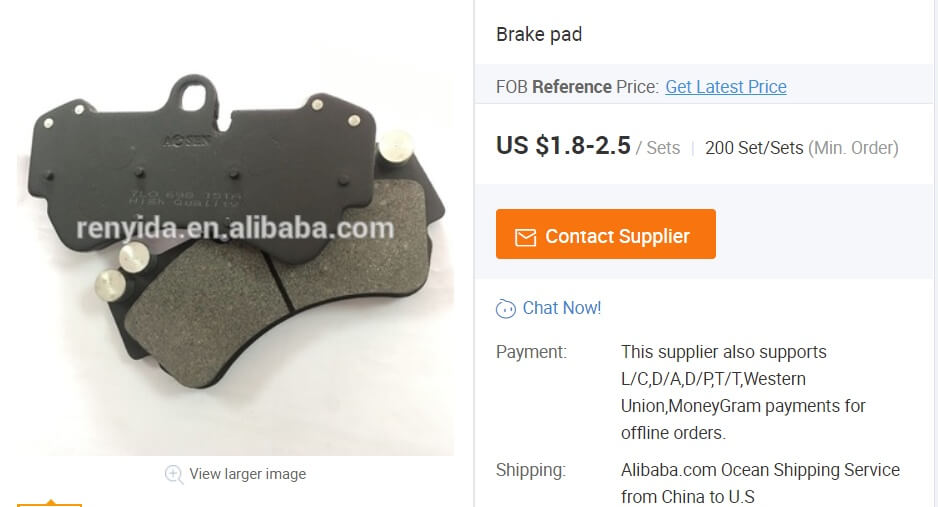Where to get your brakes replaced?
Where to Get Your Brakes Replaced: The Pros and Cons of Local Shops, Dealers, or Chain
When it comes to brake repairs, the question arises: where is the best place to get them fixed? This article delves into the various options available, weighing the pros and cons of each to help you make an informed decision.
Why a chain or franchised shop is the worst place to get your brakes replaced
You’ll never pay the “special” or “sale” price
Some shops advertise a $399 or $479 brake job “special.” Unfortunately, nobody ever leaves those shops paying those low prices. It’s a “come-on” bait-and-switch. Because once your car is up on the lift, it’ll “need” new calipers, rotors, and calipers all around. Nobody leaves those places for less than $1,000.
Nobody leaves a chain repair shop without new calipers
Chain and franchise shops have never seen a vehicle that didn’t need new calipers. Everybody gets new calipers whether they need them or not. In reality, very few cars actually need new calipers. More on that below.
They install low-quality parts
The National chains buy their brake parts in bulk from the cheapest supplier. I can buy brake pads in bulk from Alibaba for as little as $9.00 a set and rotors for as little as $11 each. That’s usually the quality you’re getting at the chains. The parts are labeled as Premium Quality, and they come with a lifetime warranty. But they’re not premium quality and their warranty comes with a catch. Yes, they’ll replace the pads if they cause a problem, but you’ll pay for the labor and the cost of new rotors. When those fail again in a few years, you’ll pay for it again.
Their technicians work on commission
The techs at chain shops get flat rate pay plus a commission on every upgrade they sell. Read into that whatever you will.
Summary: You’ll pay the highest price at a chain shop due to bait-and-switch sales tactics, unnecessary parts replacement, low-quality parts, and techs on commission.
The Pros and Cons of getting your brakes replaced at the Dealer
Pros of getting your brakes replaced at the car dealer:
• OE parts— Dealers install genuine OE brake pads and rotors
• Fewer Upsells— Generally speaking, dealers typically don’t pressure you into replacing the calipers unless they’re leaking, the seals are damaged, or they don’t operate properly.
• Nicer waiting areas— Dealers have nicer customer lounges
• The overall price is just slightly higher than from a local shop
Cons of getting your brakes replaced at the car dealer:
• Higher hourly labor rate— Dealers usually have the highest hourly labor rate. That’s an issue if you they discover more problems once they dig into your brakes.
Summary: Everyone assumes the dealer will cost far more than a traditional shop. But that’s not always the case, and a brake job is a perfect example. You’ll pay the suggested retail price for parts at a dealer. But independent shops add a 66%-100% markup to their parts costs, and many times their parts cost as much or more than dealer parts.
Getting your brakes replaced at a locally owned shop with good online reviews
Neighborhood shops have a strong incentive to treat their customers fairly because they can’t afford to advertise to get new customers, unlike the chains that have huge advertising budgets. I highly recommend finding a good locally owned shop and establishing a relationship with them.
Pros of getting your brakes replaced at a neighborhood shop:
• High-quality parts— Local shops buy from local auto parts stores and usually install OE or better brake parts because they don’t want a noise or performance comeback. That hurts their reputation.
• Replace only what needs replacing— Generally speaking, neighborhood shops don’t sell unneeded parts. Again, they care about their reputation.
• You build a relationship— The more business you give them, the more responsive they are when you’re in a pickle and need service right away.
Cons of getting your brakes replaced at a neighborhood shop:
• No fancy waiting room— I hate to say it, but forget about snacks or even comfortable chairs. The locally owned shops don’t seem to put much value in customer ambiance.
• You won’t get any deals at a neighborhood shop— Their hourly labor rate is lower than the dealer, but once you add in their parts markup, you’re in the same ballpark as the dealer prices.
Summary: You’ll get high-quality parts, good work and develop a good relationship for the futue when you need work done. You’ll pay a fair price.
How bad are the brake parts from chain shops?
I already discussed how chain shops often sell economy brake pads but represent them as premium pads. They don’t last as long, they make noise, and they rust.
But what about their new brake rotors? Aren’t all brake rotors the same? Nope. Large chain repair shops can buy brake rotors for around $11 each and sell them for up to $140 each. What’s the difference? Take a look.

See the difference between economy brake rotors and OE quality brake rotors
Economy brake rotors don’t brake as well because they have less metal and non-OE cooling vanes. Straight cooling vanes cost far less than the OE style shown above.
How much can chain repair shops save by buying economy parts?
The shop’s wholesale cost on high-quality brake rotors for a Chevrolet Equinox is around $40 each. However, a chain can buy the rotors for the Equinox from China for around $9 each. Don’t believe me? Just go to Alibaba and order online.

Buy brake rotors in bulk and you can pay as little as $2 each

Buy brake pads in bulk and you can pay as little as $1.80 per set
Brake Job Horror Stories
Liane S tells the story of her “brake job from hell”
“I went to a large muffler chain for a brake job. They talked me into rotors, calipers, pads, brake drums, wheel cylinders, hardware, and brake shoes. The entire job cost over $800. Exactly one year later, the front brakes were grinding. I took it back to them, and they offered to replace the front pads for free (under warranty). But they wanted to replace the rotors, calipers, wheel cylinders, and rear drums again. This time, they wanted $700. I asked them why brand-new pads would wear out in less than 10,000 miles. They just shrugged their shoulders and told me not to worry since they were covered under warranty. I called Rick and he came over to the shop. He demanded to know why they thought I needed new calipers, rotors, wheel cylinders, and rear drums. He made them measure the rotors and drums–they were fine. So were the calipers. The shop replaced the “lifetime warranty” pads and I left the shop with no charge. If Rick hadn’t been there to help, I would have been screwed again.”
Tom F
“I had a problem with a sticking rear caliper on my Pontiac. I took it to a chain muffler shop that advertises cheap brake jobs. They insisted on replacing both rear calipers, the caliper mounting brackets, rotors, and pads. Their quote was $785. I called Rick and he explained that GM vehicles have a problem with the rear caliper pins. He recommended taking it to the dealer. I did. They removed the frozen caliper pins and installed new ones. They also resurfaced the rotors and installed factory OEM pads. The calipers were just fine. Total cost? $235. Thanks Rick! You saved me a fortune. Who would have thought that the dealer would be cheaper than the $79 brake job special?”
Here’s how to avoid brake job rip-offs
• Get brake work done at an independently owned repair shop or dealer that has good reviews.
• If the shop is trying to upsell you on brake pads other than the type installed on your car from the factory, ask them WHY they’re making the recommendation.
• If the quote includes a separate charge for hardware or shims, they’re not installing premium brake pads. Premium brake pad sets come with all the necessary hardware
• If the shop recommends new calipers, ask why. Unless the calipers are leaking or not retracting, they do not need to be replaced.
• If the shop says your old calipers are seized, ask if they can replace the bracket instead of the entire caliper. Rebuild brackets cost far less than a new caliper.
• Always ask about the brand of brake pad the shop intends to install. Is it a name brand or a store brand? Is it OE or premium quality? In my personal opinion, store brands are of lower quality than name brands, and they cost about the same price.
• A brake fluid flush isn’t always necessary. If the shop recommends it, ask them if they’ve tested the brake fluid to determine if it should be changed. Brake fluid color is NOT an indicator of condition. Shops use a refractometer or electrical tester to determine brake fluid moisture content and test strips to determine copper content and pH. If your brake fluid has been tested and failed, have the shop perform a brake fluid flush.
• Ask the shop if there’s a bedding procedure for your new brakes and ask if they’ve performed the procedure before you leave.
©. 2019 Rick Muscoplat
Posted on by Rick Muscoplat